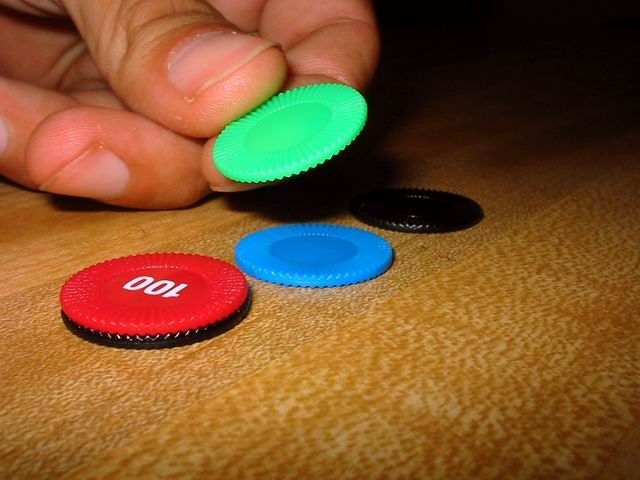So Long Sucker (1964) Board Game
So Long Sucker is a board game released in 1964 and designed by John Wiley & Sons. It falls under the categories of Economic and Negotiation games, and is known for its player elimination and team-based game mechanics. The game is designed for 4 players and has a runtime of about 20 minutes.
Game Components of So Long Sucker
How To Setup So Long Sucker
To set up the game, each player receives seven chips of their unique color, and an additional non-playable eighth chip is placed next to them to identify their starting color. A bowl for killed chips is placed on the table, and the starting player is determined randomly, often by rolling a six-sided die. The player with the highest number goes first.
Gameplay Mechanics and Game Objective
– Players take turns placing one chip from their supply onto the playing area, either starting a new pile or adding to an existing one.
– If the top two chips are the same color, a capture occurs: the player of that color removes one chip from the game and takes the remaining chips, then determines the next player.
– If all four colors are in a pile, the player whose top chip is furthest down in the stack goes next.
– Players can form coalitions and make deals, but all deals are public and non-binding.
– A player is defeated if they cannot make a move; their chips remain in play but are ignored in determining the order of play.
Player Experience
So Long Sucker is a game filled with intrigue and betrayal, requiring players to form alliances and inevitably break them to win. The game highlights the principles of game theory, particularly how people form coalitions and how behavior changes based on expected future actions. It is a simple yet strategic game that relies heavily on player interaction and negotiation.
Pros
Cons
Personal Thoughts on So Long Sucker
So Long Sucker is ideal for those interested in strategy, economics, and game theory. It is a great choice for players who enjoy negotiation and forming temporary alliances. However, due to its complexity and the need to gather components manually, it may not be the best fit for casual gamers or those looking for a hassle-free setup. This game is perfect for academic settings or game groups interested in deeper strategic gameplay.
We are supported by our audience. When you purchase through links on our site, we may earn an affiliate commission, at no extra cost for you. Learn more.

